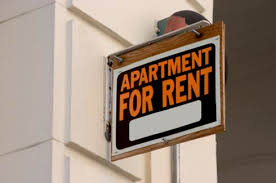Landlords in West Hollywood whose buildings are not covered by the city’s rent stabilization ordinance might soon have to disclose to prospective tenants the history of rent increases in their buildings.
 The City Council approved a proposal by City Councilmember John D’Amico that the City Attorney investigate whether it would be possible to require such landlords to reveal to renters the average annual rent increase of their apartments and the highest annual rent increase over the previous 24 months. D’Amico also is asking that landlords provide the city with that information so that it can be posted monthly on the city’s website.
The City Council approved a proposal by City Councilmember John D’Amico that the City Attorney investigate whether it would be possible to require such landlords to reveal to renters the average annual rent increase of their apartments and the highest annual rent increase over the previous 24 months. D’Amico also is asking that landlords provide the city with that information so that it can be posted monthly on the city’s website.
Increases in rents in many residential buildings in the city are governed by West Hollywood’s own rent stabilization law. That law sets the annual increase in monthly rent at 75 percent of the increase in the consumer price index for the Los Angeles/Riverside/Orange County area. Under that rule, as of Sept. 1, landlords will be able to increase rents by three-quarters of one percent.
However a state law known as the Costa-Hawkins Rental Housing Act requires that newly constructed apartment buildings, single-family homes and condominiums be exempt from rent control ordinances. In West Hollywood, “new construction” is defined as a building that received its certificate of occupancy after July 1, 1979.
“The only protection through state law is that a landlord must provide at least 30 days’ advance notice for rent increases of 10 percent or less and a 60 days’ advance notice for rent increases of greater than 10 percent,” D’Amico noted in a memo about his proposal.
“From September 1, 2014 through August 31, 2015, the annual general adjustment for rent stabilized buildings in West Hollywood is 1.25 percent,” D’Amico’s memo said. “During this same time period, it has been reported that the owners of exempt buildings in West Hollywood have increased rents by as much as nine percent, and, in at least one case, by 20 percent.”

@luca d: amen
I think the City ought to regulate the cost of cocktails at all the gay bars. $14 for a drink at the Abbey is too expensive. They ought to make the maximum price $5 so that I don’t have to work more than 30 hours a week.
you really did missed my point RM. i was speaking of people who are offended by business practices and making money. i know profit is a dirty word, but again, i reiterate that owning an apartment building is a business and should be run as such, and the city has no right to request ‘open books’. fair housing and sound judgment rule the day, and just because the city wants to know what i charge for rent, and make it public, so they can pretend to care about affordable housing is ridiculous. that train left the station years ago when… Read more »
Luca, providing several years of tax returns and pay stubs is actually common when renting an apartment these days (in addition to good credit and deposits), so there is no “privacy” for renters. And it seems to me that you already do disclose your books to the city, state and federal government every year? Also, I actually can look into the books of most major companies as they are public and disclose their finances in detail to investors. But no worries, even if I were about to rent a property from you I would have no interest in looking at… Read more »
not sure what business you might be in, RM, but owning a rental property is very much a business, taxed, insured, etc, and falls under many rules and regs from city and state. the law states that after 1979, a building built, DOES NOT have to comply with rent control regulations. an owner wisely stays within reasonable market forces…again, it’s a business. i do not have to open my rents to you or the city, and that’s not about ‘transparency’, it’s about privacy and my right to operate my business. always, good standards and practices apply. frankly stated, just because… Read more »
Transparency is never a bad idea.
I’m not sure how much this actually means for renters though. Without rent control they are at the mercy of the owner, no matter their past history, especially in this era of cheap credit, where some buildings change owners like ping pong balls. A building on my block (6 apartments) has been sold 3 times in the last 4 years.